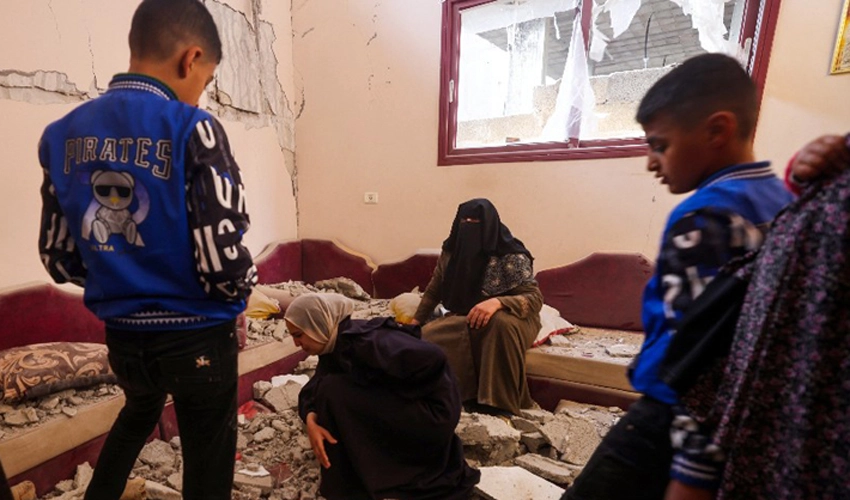UN warns Gaza 'uninhabitable' as war rages on, martyrs' toll rises to 22,722

GAZA, Palestine (AFP) - Israel bombed southern Gaza Saturday as the UN warned the besieged Palestinian territory has been rendered 'uninhabitable' by three months of war.
The health ministry in Hamas-run Gaza said at least 22,722 people had been martyred in the besieged Palestinian territory since war with Israel erupted on October 7. It said in a statement that it had recorded 122 deaths over the past 24 hours, while a total of 58,166 people had been wounded in the Gaza Strip in nearly three months of fighting.
Civilians in the Hamas-ruled Gaza Strip have borne the brunt of the violence amid widespread displacement, destruction and a deepening humanitarian crisis. With swathes of the territory already reduced to rubble, UN humanitarian chief Martin Griffiths said Friday that "Gaza has simply become uninhabitable". AFP correspondents reported Israeli strikes early Saturday on the southern city of Rafah, where hundreds of thousands of people have sought shelter from the fighting.
On Israel's northern border, Lebanon's Hezbollah group said it launched on Saturday its "initial response" to the killing of Hamas's deputy chief in Beirut, which a US defence official has told AFP was carried out by Israel. Contacted by AFP, a military spokesperson confirmed the mountaintop base had been targeted but did not say whether it was damaged. No casualties were reported in Israel.
The Hamas-allied Lebanese movement has been trading near-daily fire with Israeli forces since early October and said the barrage was a response to Tuesday's killing of Saleh al-Aruri in a strike on Beirut's southern suburbs, a Hezbollah stronghold. The army said it had struck Hezbollah "military sites" in response. Military spokesman Daniel Hagari said late Friday that Israeli forces were maintaining a "very high state of readiness" along the border with Lebanon following Aruri's killing, which Israel has not claimed.
In Gaza, Hagari said, the army continues "to fight ... in the north, centre and south". Palestinian man Abu Mohammed, 60, who fled to Rafah from the central Bureij refugee camp, told AFP that as the war nears its fourth month, Gaza's future appeared "dark and gloomy and very difficult".
'More than 20' deaths in family
The militants also took around 250 hostages, 132 of whom remain in captivity, according to Israel, including at least 24 believed to have been killed. In response, Israel has launched a relentless bombardment and ground invasion that have killed at least 22,722 people, most of them women and children, according to the Hamas-run Gaza health ministry.
In a statement on Saturday, the ministry said it had recorded more than 120 deaths over the past 24 hours. Victims of renewed Israeli bombardment were brought Saturday to the European hospital in the southern city of Khan Yunis, where relatives and mourners gathered. One of them, Mohamed Awad, wept over the body of a 12-year-old boy. He counted the deaths in his family. "My brother, his wife, his children, his relatives and the brothers of his wife -- there are more than 20 martyrs," Awad, a journalist, told AFP.
Another Palestinian journalist, Akram El-Shafei, has died at the hospital from wounds sustained in Gaza City in November, making him "the 117th journalist... killed by the Israeli occupation during this crazy war", according to Asser Yassin of the Palestinian Media Forum. Yassin said Israel "directly targets journalist" but that it "only increases our determination to... convey the suffering and pain" to the world. Israeli officials have rejected allegations that the army deliberately targets members of the press.
Shafei's condition had initially improved, said relative Magda El-Shafei, but he "needed treatment" and there was "nothing" available. "He's gone," she told AFP. The World Health Organization (WHO) says the majority of the Palestinian territory's 36 hospitals have been put out of action by the fighting, while remaining medical facilities face dire shortages.
A UN team on Friday delivered medical supplies to Gaza authorities in Khan Yunis, and WHO coordinator Sean Casey said it was "the first time we've been able to make this delivery in about 10 days."







